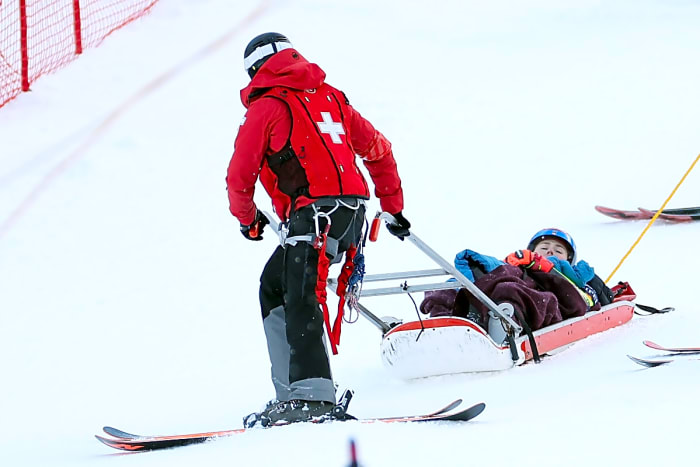
After a winter season spent struggling with the mental fallout of a big crash, Mikaela Shiffrin, the winningest alpine racer of all time, wrote, “I feel like myself again” in a letter penned for The Players’ Tribune.
In November 2024, Shiffrin suffered a dramatic fall while speeding down the Killington, Vermont, World Cup Giant Slalom course.
The crash, which resulted in a puncture wound to her abdomen that almost perforated her colon, forced Shiffrin to the ski racing sidelines for several weeks. But the psychological toll, which revolved, in part, around her return to giant slalom, may have been greater.
“When I got back out on the snow,” Shiffrin, in her Players’ Tribune article, wrote. “Something weird happened.”
She described dreams and how, sometimes, when you’re dreaming, you feel like you’re moving through molasses. When Shiffrin began training again as she prepared to mount a mid-season post-injury comeback, that’s how she felt on the slopes, she wrote.
“It was almost as though I was no longer in control of my body,” Shiffrin wrote.
Want to keep up with the best stories and photos in skiing? Subscribe to the new Powder To The People newsletter for weekly updates.

Shiffrin recalled that, in some moments, “grim images” would flash through her mind. She’d see herself crashing. Then, pain would appear across her body in response.
While Shiffrin began racing in slalom in January, she pulled out of the giant slalom event at the world championships the next month. Ultimately, according to her Players’ Tribune article, she decided she needed to do something, and at the prompting of her therapist, she began looking at her experiences through the lens of PTSD.
Post-traumatic stress disorder, or PTSD, occurs in individuals after they’ve suffered an extremely stressful or terrifying event. Afterward, they’ll experience flashbacks and difficult-to-manage thoughts about the event. For Shiffrin, that was the crash in Killington.
She noted that other incidents may have played a role in her developing PTSD.
Shiffrin also crashed at the start of 2024. Her fiancé, Aleksander Aamodt Kilde, who’s another elite ski racer, had a life-threatening crash in Wengen, Switzerland, that same year. Shiffrin recalled the sudden passing of her father in 2020 after an accident, too.
“Maybe when I crashed and got that puncture wound, maybe that was kind of a perfect-storm situation for PTSD to take hold,” she wrote.
What was the cure, then? For Shiffrin, it was continuing to train and return to the start gate again and again. As the weeks passed, her PTSD symptoms began reducing in severity.
“I found a way to keep telling myself that just because something bad happened once … that didn’t mean it was going to happen again,” she wrote.
In February 2024, Shiffrin returned to the World Cup giant slalom course in Sestriere, Italy.
“Even though I wasn’t particularly fast in those first giant slalom races back, just being willing to take on that challenge, to get back in the race?” Shiffrin wrote. “Being willing to try … that felt like a tangible improvement.
Last winter, Shiffrin ultimately didn’t make it to the giant slalom podium as she had in the past.
However, she found success in slalom despite the emotional turbulence, claiming her 100th career win and placing first in the finals in Sun Valley, Idaho, two achievements that further cement her legacy.
Perhaps more importantly, Shiffrin had restored her mind-body connection.
"I feel it with every fiber of my being," she wrote at the conclusion of her article.
More must-reads:
- Clemson HC Dabo Swinney fumes over college football officiating, calls for 'accountability'
- Kevin Durant, Draymond Green argue over Warriors' titles, and they're both right
- The 'World Series MVPs' quiz
Breaking News
Trending News
Customize Your Newsletter
 +
+
Get the latest news and rumors, customized to your favorite sports and teams. Emailed daily. Always free!








